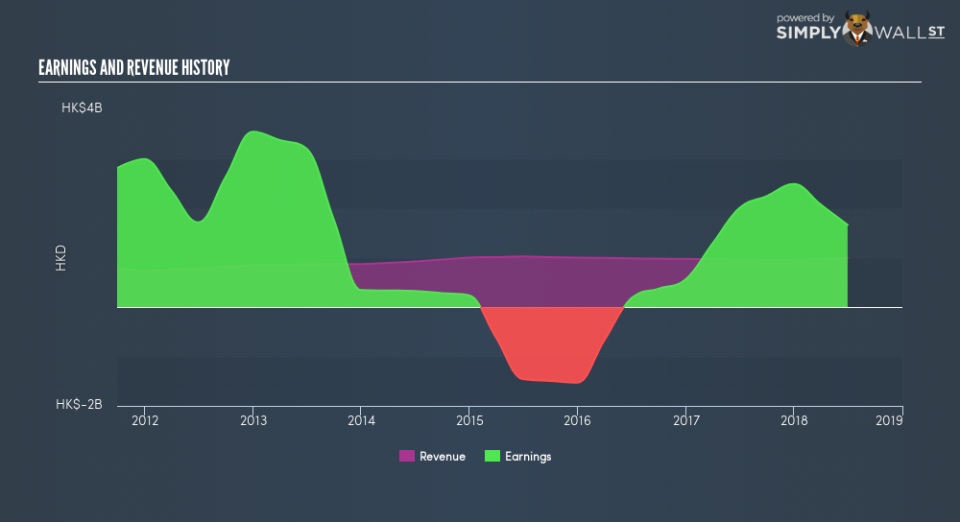The Regal Real Estate Investment Trust (HKG:1881) Ownership Structure Could Be Important

The big shareholder groups in Regal Real Estate Investment Trust (HKG:1881) have power over the company. Institutions often own shares in more established companies, while it’s not unusual to see insiders own a fair bit of smaller companies. We also tend to see lower insider ownership in companies that were previously publicly owned.
Regal Real Estate Investment Trust isn’t enormous, but it’s not particularly small either. It has a market capitalization of HK$7.36b, which means it would generally expect to see some institutions on the share registry. In the chart below below, we can see that institutions own shares in the company. Let’s take a closer look to see what the different types of shareholder can tell us about 1881.
View our latest analysis for Regal Real Estate Investment Trust
What Does The Institutional Ownership Tell Us About Regal Real Estate Investment Trust?
Institutional investors commonly compare their own returns to the returns of a commonly followed index. So they generally do consider buying larger companies that are included in the relevant benchmark index.
As you can see, institutional investors own 8.8% of Regal Real Estate Investment Trust. This can indicate that the company has a certain degree of credibility in the investment community. However, it is best to be wary of relying on the supposed validation that comes with institutional investors. They too, get it wrong sometimes. If multiple institutions change their view on a stock at the same time, you could see the share price drop fast. It’s therefore worth looking at Regal Real Estate Investment Trust’s earnings history, below. Of course, the future is what really matters.
We note that hedge funds don’t have a meaningful investment in Regal Real Estate Investment Trust. While there is some analyst coverage, the company is probably not widely covered. So it could gain more attention, down the track.
Insider Ownership Of Regal Real Estate Investment Trust
While the precise definition of an insider can be subjective, almost everyone considers board members to be insiders. Management ultimately answers to the board. However, it is not uncommon for managers to be executive board members, especially if they are a founder or the CEO.
Insider ownership is positive when it signals leadership are thinking like the true owners of the company. However, high insider ownership can also give immense power to a small group within the company. This can be negative in some circumstances.
Our most recent data indicates that insiders own less than 1% of Regal Real Estate Investment Trust. It appears that the board holds about HK$6.3m worth of stock. This compares to a market capitalization of HK$7.36b. Many investors in smaller companies prefer to see the board more heavily invested. You can click here to see if those insiders have been buying or selling.
General Public Ownership
With a 23.5% ownership, the general public have some degree of sway over 1881. While this size of ownership may not be enough to sway a policy decision in their favour, they can still make a collective impact on company policies.
Public Company Ownership
Public companies currently own 67.5% of 1881 stock. We can’t be certain, but this is quite possible this is a strategic stake. The businesses may be similar, or work together.
Next Steps:
I find it very interesting to look at who exactly owns a company. But to truly gain insight, we need to consider other information, too.
I like to dive deeper into how a company has performed in the past. You can access this interactive graph of past earnings, revenue and cash flow, for free .
If you would prefer discover what analysts are predicting in terms of future growth, do not miss this free report on analyst forecasts.
NB: Figures in this article are calculated using data from the last twelve months, which refer to the 12-month period ending on the last date of the month the financial statement is dated. This may not be consistent with full year annual report figures.
To help readers see past the short term volatility of the financial market, we aim to bring you a long-term focused research analysis purely driven by fundamental data. Note that our analysis does not factor in the latest price-sensitive company announcements.
The author is an independent contributor and at the time of publication had no position in the stocks mentioned. For errors that warrant correction please contact the editor at editorial-team@simplywallst.com.

 Yahoo Finance
Yahoo Finance 

